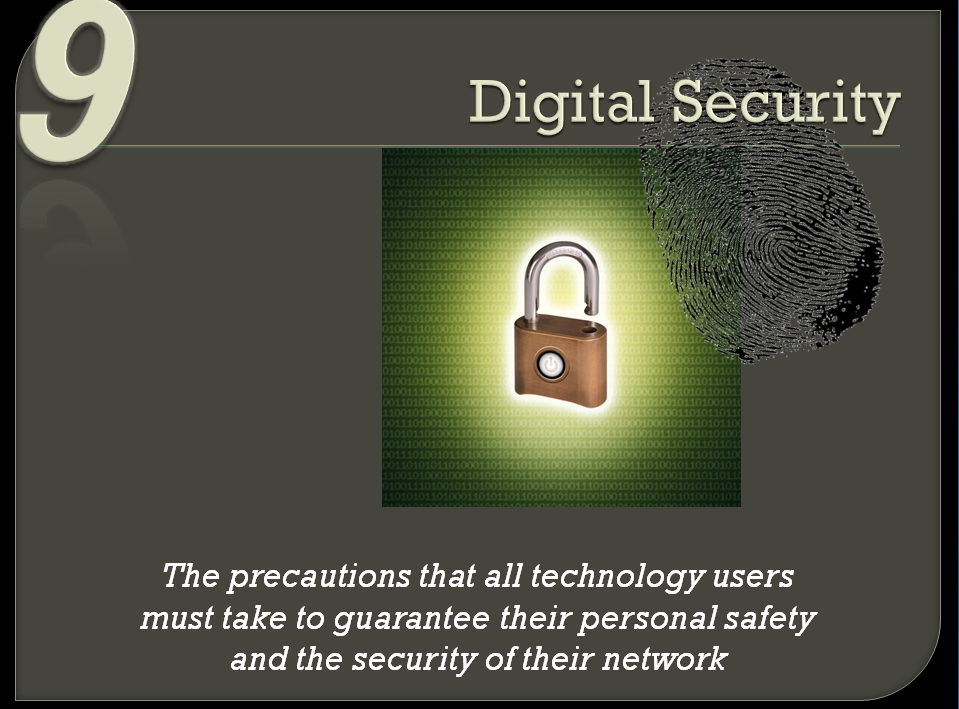The 9 Elements of Digital Citizenship
Overview
Digital Security
 When using technology it is important to ensure you know how to:
When using technology it is important to ensure you know how to:
Create a complex password so it can not be easily guessed- Keep your personal passwords private, they are not for anyone else. Being careful of where you keep your passwords is also important
- Protect your home and school networks from the likelihood of getting viruses or worms
These pieces above are all part of Digital Security
Identity Theft / Phishing:
Your personal data can be used in a malicious manner, and there are many scammers who pose as legitimate businesses and try to gain your information.
-
Be careful when giving out personal information, such as your phone number, home address, community name, full name or birth date. Be selective about the amount of information you reveal about yourself on the internet. Limit the data that you give out in contests or surveys.
-
Legitimate companies will not ask for sensitive information by e-mail. Asking for this information is illegal soliciting, known as "phishing”. You need to know how to protect yourself.
-
Use your best judgement when on the Internet. If it sounds too good to be true, it probably is.
-
Watch for emails that appear to be from a bank or
credit card company that ask forpersonal information, or ask you to call a phone number to verify your account information. -
Watch for emails with obvious spelling mistakes, or messages that are sent out to a large number of recipients.
-
Always use a complex password, and change it frequently. Make your password difficult to guess, and never share it with your friends.
-
Spam
Learn to recognize spam and delete it before reading and/or opening it.
-
Do not forward or respond to spam messages.
-
Watch for emails with obvious spelling mistakes.
-
Be wary of messages that are sent out to a large number of recipients.
-
Avoid clicking on suspicious email links. Not all links are legitimate and they may contain malicious codes like viruses or redirect you to undesirable sites.